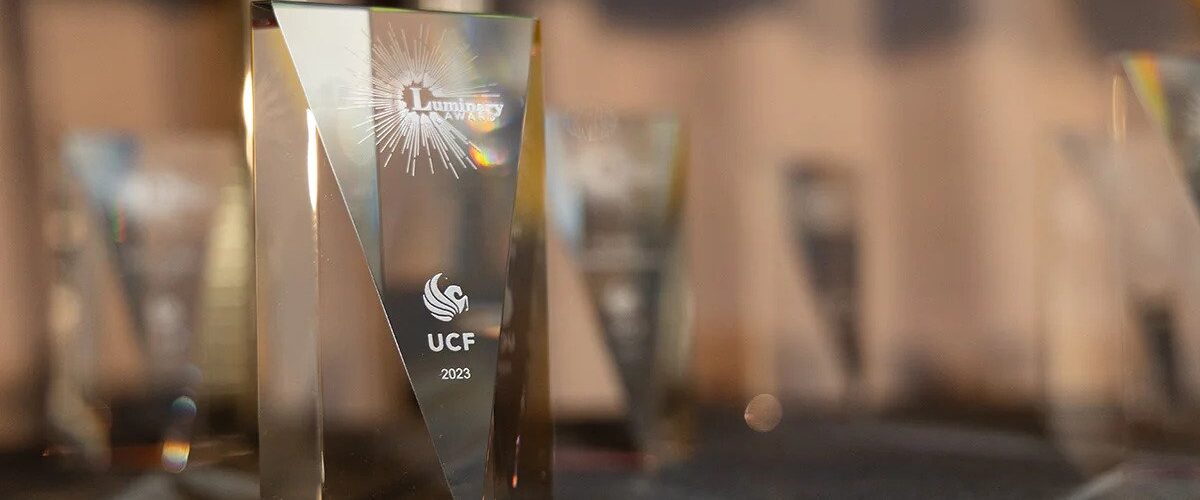UCF recognized 45 faculty members Wednesday during the university’s inaugural Luminary Award presentations for making an impact on the world.
The event, themed like Oscar night, honored those who are academic leaders in their field and are making contributions to the world that are having a significant impact.
“Merriam-Webster defines a luminary as a person of prominence or brilliant achievement,” said President John C. Hitt during the ceremony. “At UCF, we dare to dream big. As expressed in our Collective Impact Strategic Plan, we use the power of scale and the pursuit of excellence to solve tomorrow’s great challenges and make a better future for our students and society. Key to our mission is a vibrant and dynamic faculty. In various ways, the honorees help fulfill our vision of enhancing ever more lives and livelihoods through the power of higher education.”
Individuals and teams are changing people’s lives in a variety of ways such as:
- developing a more effective method of helping veterans with PTSD, giving them and their families hope for a normal life once again
- creating more effective methods to teach English as a Second Language, which are being modeled around the world
- helping shape the World Health Organization’s guidelines for communicating risk during public health emergencies
The new awards are meant to not only recognize funded research, but also the many kinds of creative works and scholarships that are just as important to the well-being of our society, said Elizabeth Klonoff, vice president of the Office of Research and dean of the College of Graduate Studies. She and Cynthia Young, a former vice provost, created the Luminary Awards.
Deans, chairs and directors from across the university nominated candidates based on the nominees’ past three years of performance. A panel from the Office of Research selected the winners.
Among this year’s recipients is Professor Necati Catbas.
People rely on the integrity of bridges to stay safe. Catbas is internationally recognized as a leading expert in civil engineering and structural integrity. He is a founding director of the Civil Infrastructure Technology for Resilience, a partnership among academia, industry and government agencies to develop and apply intelligent monitoring, sensing, material and information technologies to create safer and more resilient civil infrastructure systems.
- Written by Zenaida Gonzalez Kotala for UCF Today
- Oct. 19, 2017
